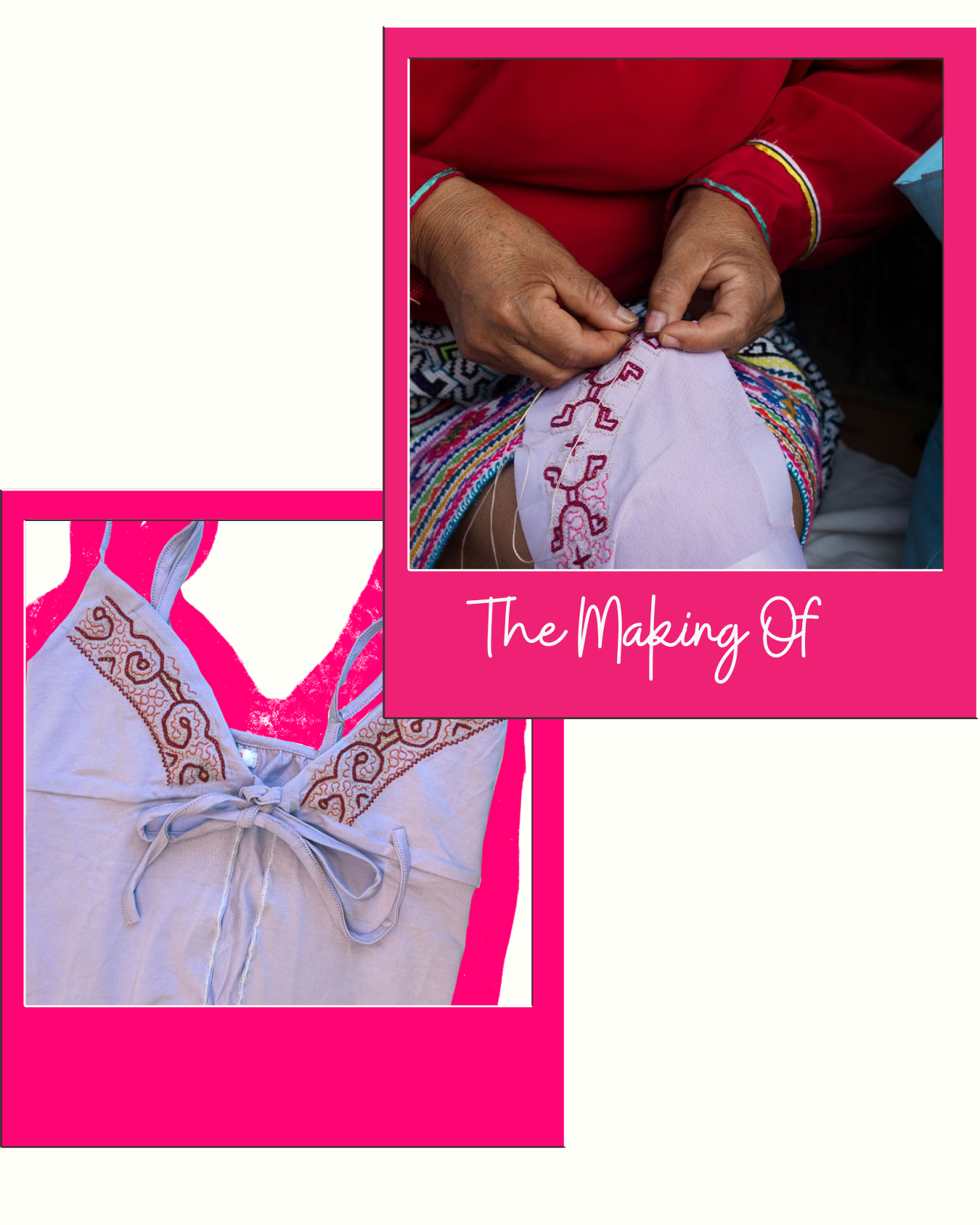
ABOUT THE PROJECT
We are launching a collaboration with Menin Yaby, a collective of 13 Shipibo-Conibo women artisans from the Amazonian settlement of Cantagallo in Lima.
Together since October 2024, we’ve created a capsule of three very special pieces, each featuring hand-painted and hand-embroidered kené - sacred geometric patterns that have been passed down for generations among Shipibo women.
“Este bordado es nuestra identidad.” - This embroidery is our identity.
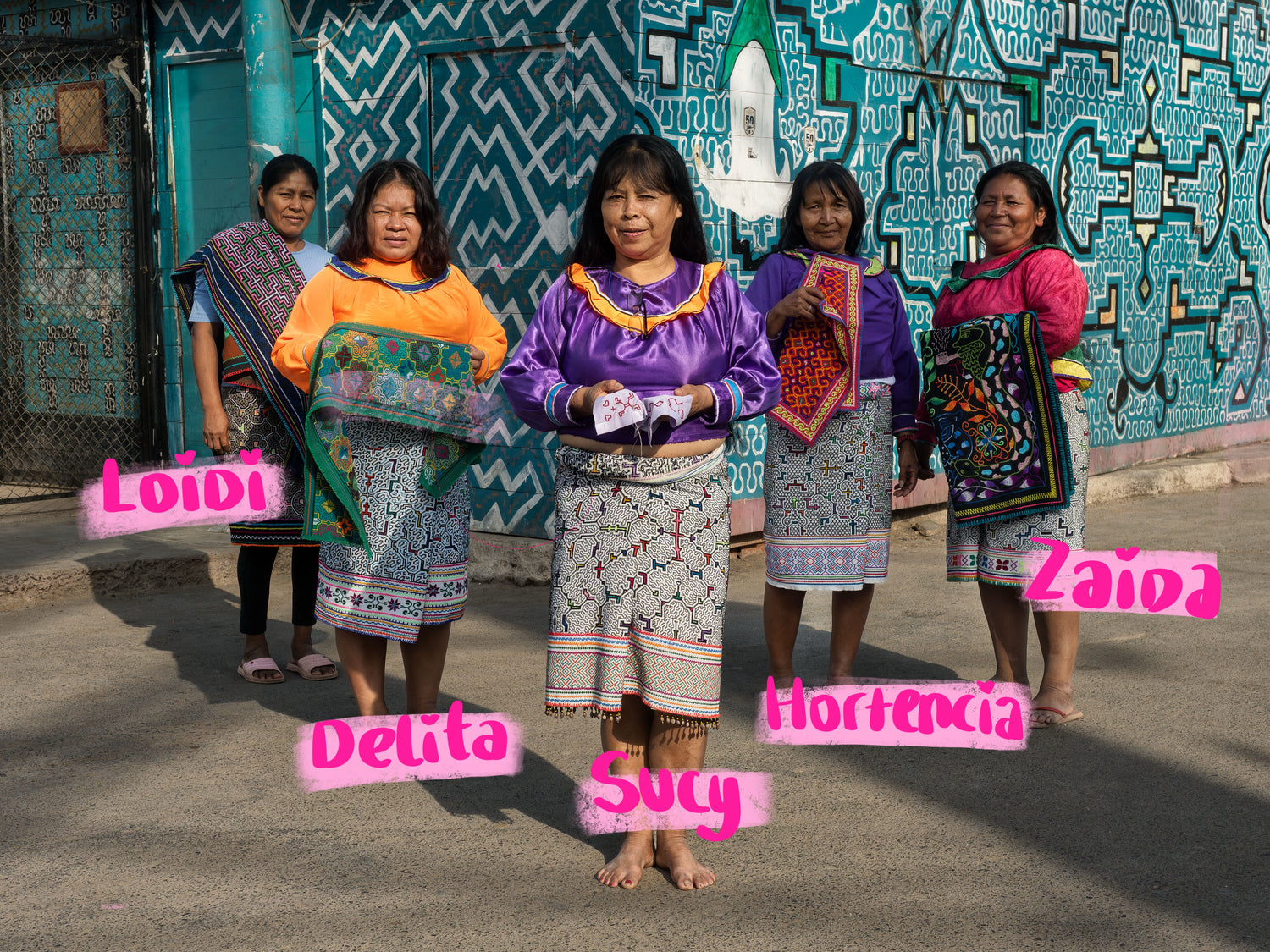
WHO ARE MENIN YABY?
Menin Yaby was founded in 2020 by artist Sucy Gómez. Originally from the Amazonian community of Betel, these women have built a creative sisterhood that supports their art, their families, and each other. They are an inspiring example of female solidarity.
“Menin Yaby es un grupo que creamos en 2020. Yo hice este grupo con la madre Elia porque no teníamos apoyo de nadie.” - Menin Yaby is a group that we created in 2020. I made the group with the “mama” elia because we didn't have any support.
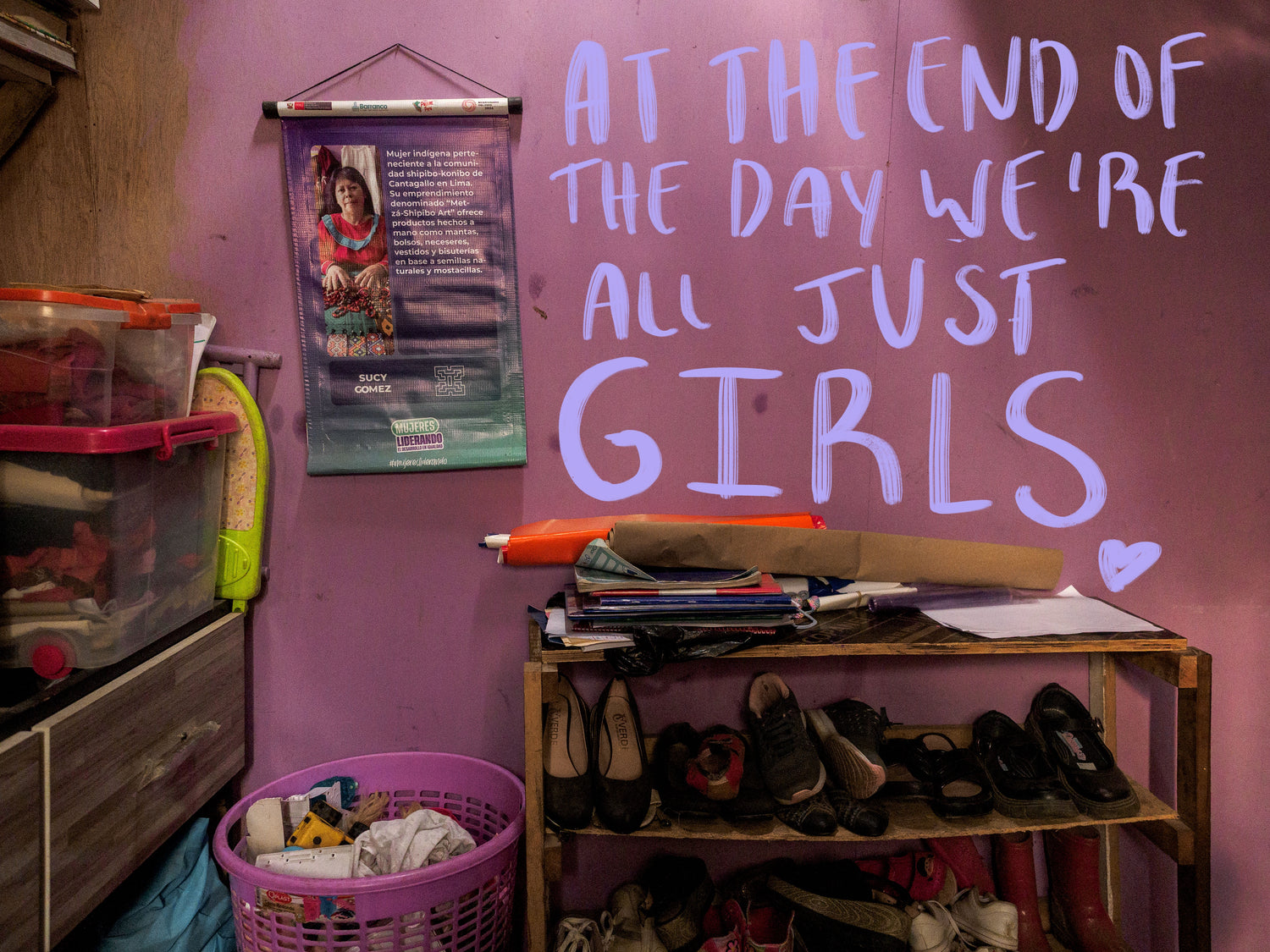
GOALS
1. Showcase and inspire We’re here to spotlight the beauty of Shipibo art and connect young girls with the creativity of Indigenous Amazonian culture.
2. Support the Mamas At the end of the day, we’re all just girls — and girls back girls. By wearing this collection, you’re honouring their art, supporting their livelihoods, and helping keep the spirit of Cantagallo alive.
3. Rooted in Peru From the fabric to the final stitch, Peru is at the heart of LAHLIS. This isn’t just a collection - it’s a tribute to our roots, our art, and the hands that bring it all to life.
WHO ARE THE SHIPIBO CONIBO?
The Shipibo-Conibo are Indigenous people from the Peruvian Amazon, especially along the Ucayali River. Historically, two separate groups they’ve merged over time and now form one strong cultural identity.
Their culture is deeply spiritual and intricately artistic. They traditionally practiced shamanism, and the kené patterns are what is seen when taking ayahuasca (plant medicine). It's said to facilitate the process of visualizing and mentally creating the designs, which usually feature the moon, stars, rivers, snakes, and other animals
“La anaconda da fuerza y buena energía.”
The anaconda gives strength and good energy.
Shipibo girls are taught this art from a young age, often learning from their mothers in a process that includes embroidery, weaving, and painting — using only materials found in the jungle.
‘A mi me enseñó mi abuelita cuando tenia 9 o 10 años.Tenía que bordar sí o sí. Esta necesidad de hacerlo viene del vínculo con mi cultura y mis ancestros.”
My granny taught me when I was 9 or 10. I had to embroider. This necessity to do it comes from the link it has with my culture and ancestors.

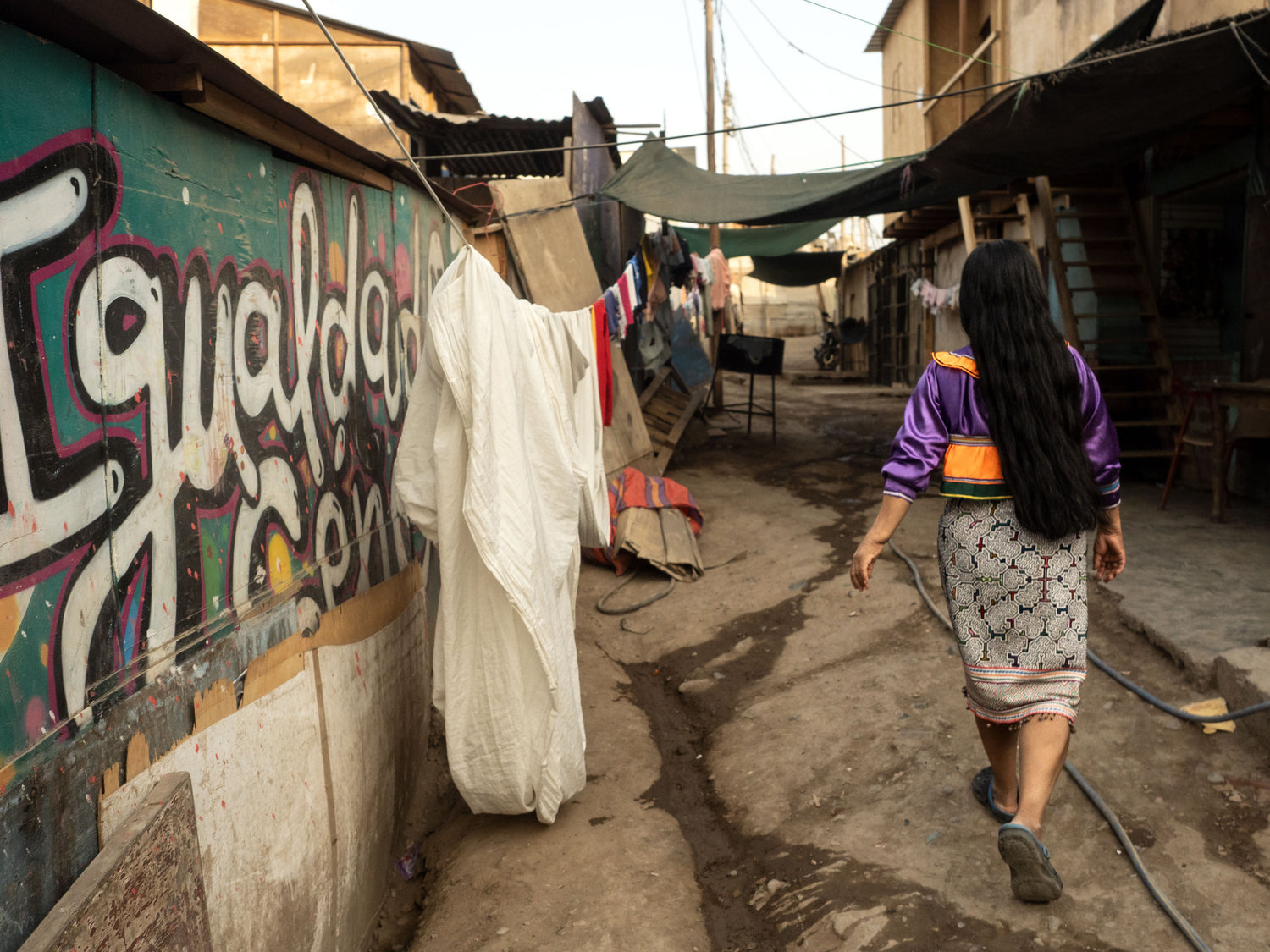
THE IMPACT
This collaboration has already started creating real, tangible change in Cantagallo, an informal Shipibo settlement in the heart of Lima. Life here is not easy. Many homes lack secure structures, and consistent work is hard to come by. Most families rely on small-scale artisan work and community support to survive.
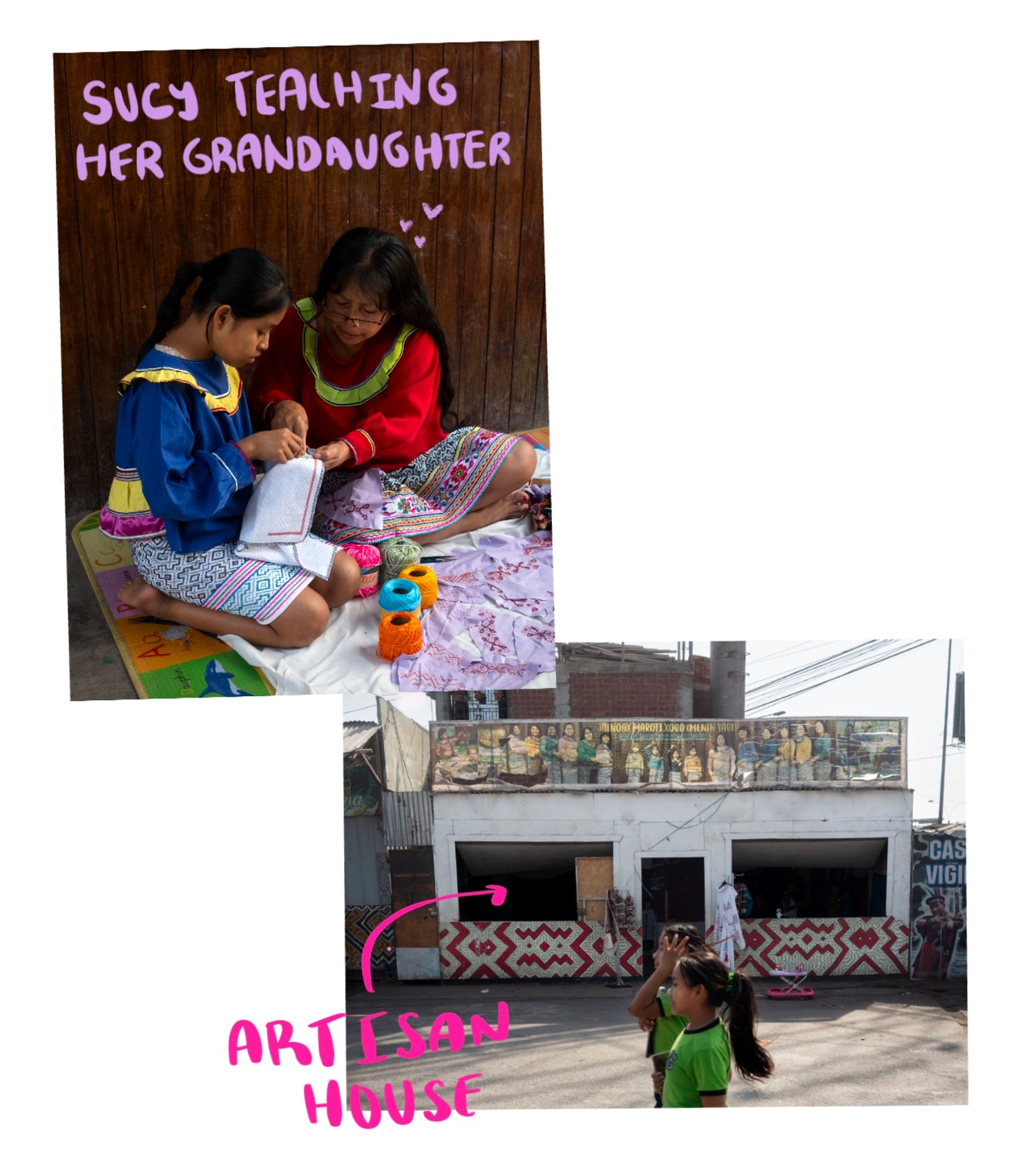
THROUGH THIS COLLECTION:
- 100% of profits go to the artisans
We cover all production, material, and transport costs — every penny made from this collection goes directly to the 13 ‘mamas’ of Menin Yaby, giving them a stable, meaningful income. - They’re building better lives
Sucy and the group are using the funds to improve their 'casita artesanal'(artisan house), create spaces to work and sell, and support elder members of the community: “If the older women need help, we support them.” - You’re platforming their art and culture
By wearing this collection, you help preserve Shipibo identity and the sacred art of kené
Support Menin Yaby
Shop Menin Yaby Collection
-
 Sold out
Sold outKené Tie Top
Regular price £35.00Regular priceUnit price per -
Menin Yaby Donation
Regular price £5.00Regular priceUnit price per -
Yacuruna T-Shirt
Regular price £35.00Regular priceUnit price per -
Manta Sagrada Ruffle Skirt
Regular price £50.00Regular priceUnit price per






